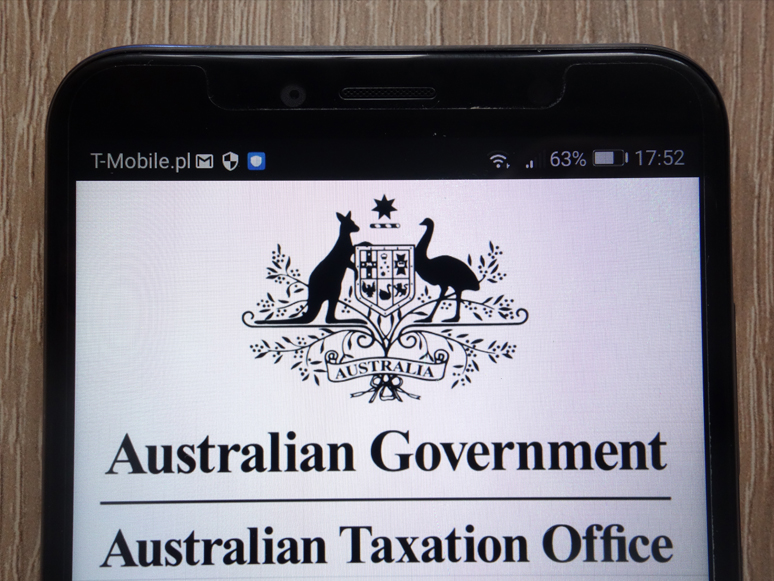logo


01st May, 2022

FBT is generally seen as a relatively slow-moving and quiet area of tax law. But Budget day this year saw some movement at the FBT station, specifically regarding COVID-19 tests provided to staff, and also car parking benefits.
The 2022–2023 Federal Budget included a measure, now passed into law, to make costs for taking a COVID-19 test to attend their workplace tax-deductible for individuals from 1 July 2021.
COVID-19 tests, including rapid antigen tests (RATs), provided by employers to employees are considered benefits under the FBT regime.
However, by allowing for an individual tax deduction, the new measure also allows for the operation of the “otherwise deductible” rule to reduce the taxable value of the benefit to zero. The result? By introducing a specific individual income tax deduction, employers would also not have to pay FBT.
Neat solution. Well, apart from the catch: employeelevel declarations could be required when the provision of a RAT is a property fringe benefit (that is, legal ownership of the item passes from the employer to the employee).
Where a RAT is provided as an expense reimbursement or residual benefit, an employer-level declaration is available (that is, one declaration signed by the public officer on behalf of each employing entity lodging an FBT return to declare that there is no private use).
In case collecting hundreds or thousands of employeelevel paper declarations is not how you’d like to spend
your time, we see three options at this stage:
As a reminder:
The scope of the term “commercial parking station” is therefore fundamental to determining if an employer has taxable car parking benefits.
Broadly, a commercial parking station is one where car parking spaces are, for payment of a fee, available in the ordinary course of business to members of the public for all-day parking.
The ATO issued a ruling in 2021 that no longer applied the interpretation that car parking facilities with a purpose other than providing all-day parking (usually charging significantly higher rates) are not commercial parking stations. This was to apply from 1 April 2022.
In effect, this would bring facilities like shopping centre car parks and hospital car parks into the definition of a “commercial parking station”. For employers with only that type of parking within a one-kilometre radius, the consequences were significant, potentially bringing previously non-taxable employer-provided car parking within the scope of FBT.
The Federal Government has announced it will be undertaking consultation with the intent of restoring the previously understood application of FBT to car parking fringe benefits, which is closer to the original policy intent of the car parking FBT provisions. The readjusted definition would then apply from 1 April 2022 instead.
01st May, 2022

The ATO is urging people and businesses to be vigilant following an increase in reports of fake websites offering to provide tax file numbers (TFN) and Australian business numbers (ABN) for a fee, but failing to provide those services.
The fake TFN and ABN services are often advertised on Facebook, Twitter or Instagram. The scammers use the fraudulent websites they advertise to steal both money and personal information.
The ATO is also still seeing scammers impersonating the ATO, making threats, demanding the payment of fake tax debts or claiming a TFN has been “suspended” due to fraud.
In 2021, more than 50,000 people reported various ATO impersonation scams, with victims losing a total of more than $800,000.
Tips to protect yourself from scammers
01st May, 2022

Because of the financial impacts of COVID-19, trustees of a self managed superannuation fund(SMSF), or a related party of the fund, may provide or accept certain types of relief, which may give rise to contraventions of the super laws. Some trustees may also have been stranded overseas because of travel bans, which can affect their fund’s residency status.
In recognition of these issues, the ATO is offering support and relief to SMSF trustees for the 2019–2020, 2020–2021 and 2021–2022 income years.
This generally includes not taking any compliance action against an SMSF and not requiring the SMSF auditor to report related contraventions in the following areas:
14th Apr, 2022

If you run a small business and are found by the ATO to have made unintentional record-keeping mistakes, you could face having to pay an administrative penalty. However, this could soon change under a proposed new law that would give ATO the power to issue a direction to complete an approved record-keeping education course instead. Legislation to implement this measure has been introduced into Parliament but not yet passed.
This proposed change originated as a part of the Black Economy Taskforce’s final report, which found that tax-related record-keeping obligations should be made clearer for businesses, and that the ATO should have a range of administrative sanctions available at its discretion for breaches of the rules.
Under the proposed new law, the ATO may issue a tax-records education direction in appropriate situations, which will require the appropriate person within a business to take a specified, approved course of education and provide the ATO with evidence of completion. This would be applied in circumstances where the record-keeping mistakes were unintentional, due to knowledge gaps or variations in levels of digital literacy, or where the ATO reasonably believes that the entity has made a genuine attempt to comply with their obligations.
The tax-records education direction would not be available to businesses that deliberately avoid record-keeping obligations. In those cases, financial penalties will still be applied, and if there is evidence of serious non-compliance, the ATO may also consider criminal sanctions.
14th Apr, 2022

The maximum amount that individuals can take out of their superannuation under the First Home Super Saver Scheme (FHSS) will be increased to $50,000 for any release requests made on or after 1 July 2022. The scheme was originally envisaged as a tax-effective way for first home buyers to save for a deposit, and the increase in the maximum releasable amount presumably reflects the rapidly escalating housing price increases. The scheme is available to both first home buyers and those intending to build their first home, subject to certain conditions of occupation.
The first step in releasing eligible funds is to obtain a FHSS Determination from the ATO which sets out the maximum amount that an individual can have released under the scheme. It’s imperative to make sure you’ve finished making all your voluntary contributions under the scheme before applying for a Determination, and of course, to check the accuracy of the Determination issued by the ATO.
There is a limit of $15,000 of eligible contributions that can be released each financial year (up to a total limit of $30,000 currently, or $50,000 from 1 July 2022).
When you have a FHSS Determination and subsequently sign a contract to purchase, a valid release request must be given to the ATO within 14 days. After the release of money, if you haven’t signed a contract to purchase or construct a home within 12 months, the ATO will generally grant an extension for a further 12 months automatically. You also have the choice to recontribute the amount back into your super fund, or to keep the money and pay a flat 20% tax on assessable FHSS released amounts.
31st Mar, 2022

The Budget confirms the Government’s previously announced intention to digitalise trust and beneficiary income reporting and processing.
It will allow all trust tax return filers the option to lodge income tax returns electronically, increasing pre-filling and automating ATO assurance processes. There are no other additional details in the Budget papers than in the earlier announcement.
The measure will commence from 1 July 2024 – “subject to advice from software providers about their capacity to deliver”.
The Government advises that it will consult with affected stakeholders, tax practitioners and digital service providers to finalise the policy scope, design and specifications.
The Budget confirms the Treasurer’s earlier announcement that businesses will be provided with the option to report taxable payments reporting system data on the same lodgment cycle as their activity statements, via accounting software. The rules for the taxable payments reporting system are contained in Subdiv 396-B of Sch 1 to the Taxation Administration Act 1953.
The Government will consult with affected stakeholders, tax practitioners and digital service providers to finalise the policy scope, design and specifications of the measure.
Subject to advice from software providers about their capacity to deliver, it is anticipated that systems will be in place by 31 December 2023, with the measure to commence on 1 January 2024.